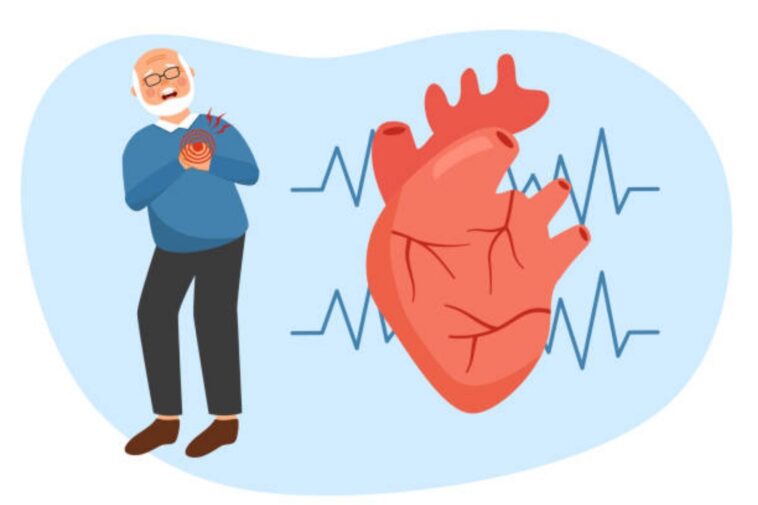We often think about the big things that can damage our hearts, like smoking or eating too much junk food. However, some of our daily habits might be quietly affecting our heart health without us even realizing it. These seemingly harmless routines could add up over time, putting extra strain on our hearts.
Understanding how our everyday choices impact our heart health is the first step toward making better decisions. The good news is that small changes in our daily routines can make a big difference in protecting our hearts. Let’s look at seven common habits that might be causing more harm than you think.
1. Sitting Too Long Without Moving
Many of us spend hours sitting at our desks or relaxing in front of the TV without realizing how this affects our hearts. When we sit for long periods, our blood flow slows down, and our bodies don’t burn calories as effectively. This simple habit of extended sitting has become so common that doctors now call it “the new smoking.”
Even if you exercise regularly, sitting for long stretches can still harm your heart. Your body needs regular movement throughout the day to keep blood flowing properly. When you stay seated for hours, your muscles become less efficient at using the sugar and fats in your bloodstream, which can lead to heart problems over time.
2. Not Getting Enough Sleep
Going to bed late and waking up early might seem like a good way to get more done, but this habit can seriously hurt your heart. When you regularly skip proper sleep, your body doesn’t get the rest it needs to repair and maintain your heart and blood vessels.
Poor sleep does more than just make you feel tired. It can raise your blood pressure, increase stress hormones, and make it harder for your body to regulate blood sugar. These changes might not feel obvious right away, but over time, they can put significant strain on your heart.
3. Skipping Breakfast
Many people rush out the door in the morning without eating, thinking they’re saving time or calories. However, regularly skipping breakfast can force your heart to work harder during the day. When you don’t eat in the morning, your body stays in a fasting state longer than it should.
Starting your day without fuel can lead to overeating later and cause bigger spikes in your blood sugar when you finally do eat. This pattern puts extra stress on your heart and can lead to weight gain over time, even if you think you’re eating less by skipping meals.
4. Eating Late at Night
That late-night snacking habit might seem harmless, but eating close to bedtime can cause problems for your heart. When you lie down with a full stomach, it’s harder for your body to digest food properly, and this can lead to acid reflux and poor sleep quality.
Your body needs time to process food before you go to bed. Eating late can disrupt your natural sleep patterns and make it harder for your heart to slow down and rest during the night. This habit can also lead to weight gain because your body doesn’t burn calories as efficiently when you’re sleeping.
5. Ignoring Stress
We all deal with stress, but pretending it doesn’t affect us can harm our hearts. Many people push through stressful situations without taking time to relax or unwind, thinking they’ll deal with it later. This constant state of stress keeps your body in “fight or flight” mode, which puts extra pressure on your heart.
When you ignore stress, your body keeps producing stress hormones that can raise your blood pressure and heart rate. Over time, this ongoing stress response can damage your blood vessels and increase your risk of heart problems. Even if you feel fine, chronic stress takes a toll on your heart.
6. Drinking Too Much Water at Once
While staying hydrated is important, gulping down large amounts of water all at once can strain your heart. Many people save their water intake for specific times, drinking several glasses at once instead of spreading it throughout the day. This habit forces your heart to work harder to manage the sudden increase in fluid.
Your body needs a steady supply of water throughout the day, not large amounts all at once. When you drink too much water in a short time, it can temporarily dilute the salt levels in your blood and make your heart work harder to maintain proper balance.
7. Overusing Salt
Adding extra salt to our meals might seem natural, but this simple habit can hurt our hearts over time. Many people sprinkle salt on their food without tasting it first, not realizing they’re already getting plenty of salt from processed foods and restaurant meals.
Too much salt makes your body hold onto extra water, which increases the volume of blood your heart needs to pump. This extra work can raise your blood pressure and make your heart work harder than it needs to. Even if you don’t have high blood pressure now, too much salt can lead to problems over time.
Making Better Choices
The good news is that changing these habits doesn’t require major life changes. Small adjustments in your daily routine can make a big difference in protecting your heart. Start by picking one habit to work on, and make gradual changes that you can maintain over time.
Remember that taking care of your heart is about making sustainable changes, not perfect choices. Every small step toward better habits helps protect your heart and improve your overall health. Your heart works hard for you every day – making these simple changes is a way to return the favor.


